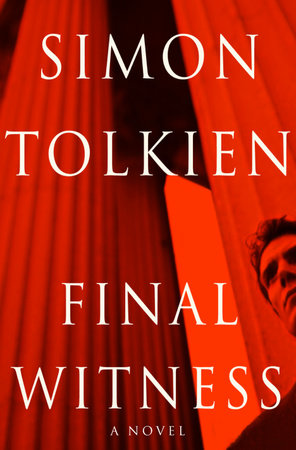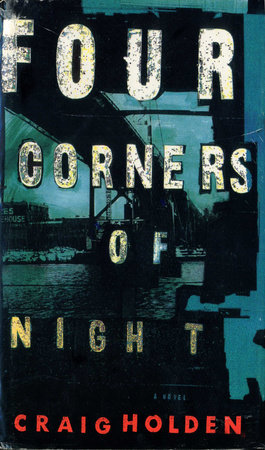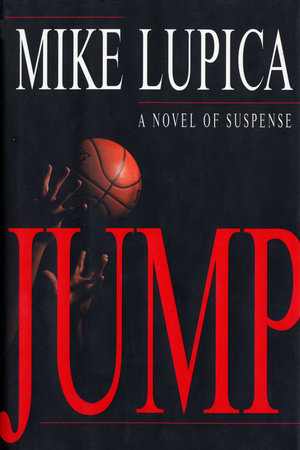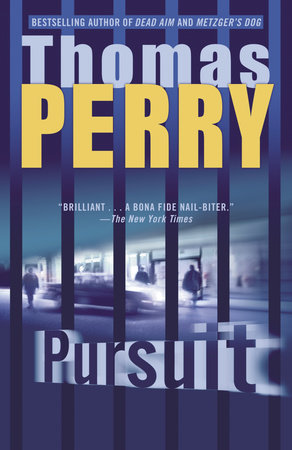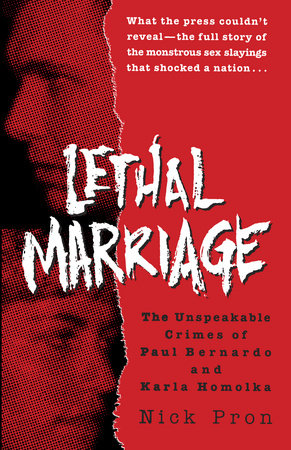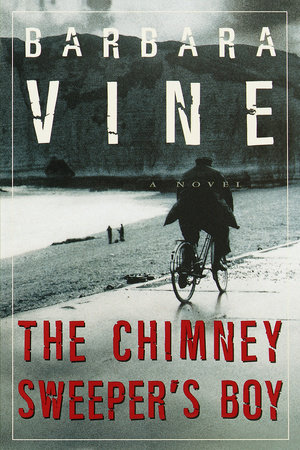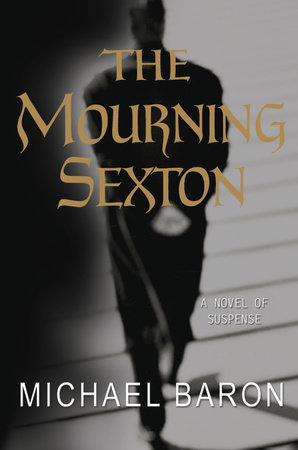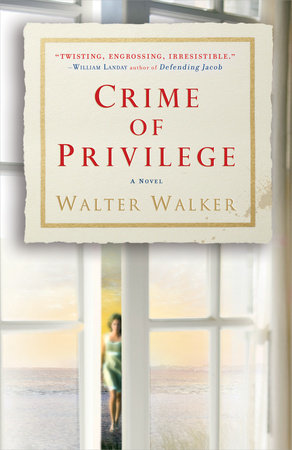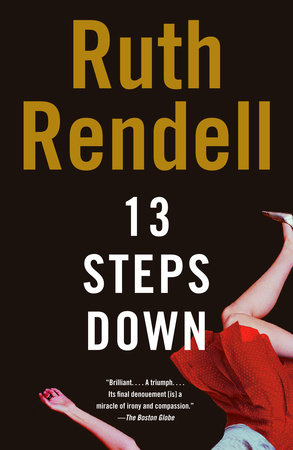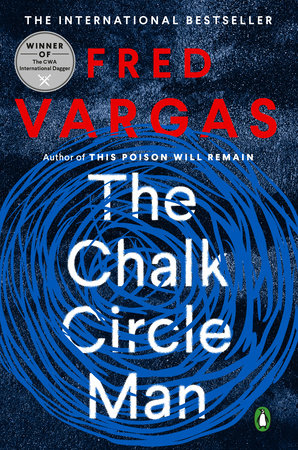BoldType interview with Simon Tolkien
BoldType: It seems that it might be difficult to write from a fictional, outside perspective on your own profession. Did you find it challenging to not unconsciously revert back into your professional mindset or “role” of a barrister while writing this novel? Any surprises in the way being a lawyer affected your persona as author?
Simon Tolkien: An important challenge for me in writing courtroom drama is to know what to leave out. Parts of the trial process are obviously boring and yet the reader must have the illusion that he is seeing everything. With Final Witness, I tried never to lose sight of the fact that I was writing a story which is only partly told through the courtroom medium. I cut the trial scenes with flashbacks seen through the eyes of the main protagonists, and with action outside the court so that the legal drama never became monotonous. Being a criminal lawyer helped me enormously, but only so long as I treated my inside knowledge of the courts as a writing tool rather than an end in itself.
BT: Of course, almost all reviewers have mentioned your grandfather, J.R.R. Tolkien. You must have known that that was going to be a big topic of interest to a lot of people. How did you prepare yourself for the inevitable?
ST: I am lucky because I have always enjoyed The Lord of the Rings, and in fact four years ago I read it aloud to my son, which took nearly a year! I think that Final Witness has given me the confidence to believe that I am more than just the grandson of a very famous man, and this means that I can really enjoy my relationship to my grandfather and be comfortable answering questions about him and his books.
BT: You also mention in your author’s note that the connection dissuaded you from writing for a long time. What finally made you decide to go for it?
ST: This is a question which I have often puzzled over during the last three years without coming up with a really satisfactory answer. I think it’s interesting that I never wrote any fiction at all before January 2000 but that I had kept a daily diary for the preceding ten years. It was as if I was unconsciously preparing myself to be a writer while at the same time maintaining a constant mantra that I couldn’t write fiction. Turning forty and the millennium were important milestones, but deep down I think that I had a need to create something outside of myself and to prove just what I could do. As a barrister I would put everything I had into writing a closing speech for the jury, but after I had given it the writing went into the dustbin. A novel lasts a lot longer if you can get it published! I do also think that my grandfather’s huge achievement did keep me back from writing for a long time, but eventually my inner need to create burst the flood walls that I had set up for myself.
BT: The widespread success of John Grisham and Scott Turow, in particular, in America has made the legal thriller a big-bucks kind of book to write. Did you consider your American competition at all when writing Final Witness? Have you read Grisham and Turow? What do you think differentiates Final Witness from other legal thrillers out there on bookshelves?
ST: I have enjoyed reading both these novelists and I loved the film of Presumed Innocent. There are more actual courtroom scenes in my book than in John Grisham’s legal thrillers, and his fictional world is very contemporary whereas I have tried to construct a traditional rural environment in Final Witness which is attacked from the outside by killers coming from a corrupt urban world. The clashes between old and new and between town and country are an important ingredient in my novel. There’s something of this in Presumed Innocent, I think, with Sabich’s beautiful East Coast home and his marriage torn apart by the consequences of his obsession with his beautiful amoral work colleague.
BT: The character of Thomas Robinson is particularly insightful and finely wrought. Did you begin the novel with an idea of him as a character and build the novel out from there? If not, what was your starting point and in what ways did the novel develop from that nexus?
ST: My novel began with the simple idea of a home being broken into by armed strangers. This is hardly an original idea, but I lay awake at night and thought of what it would really be like for the people inside. The murder scene with the terrified boy standing petrified in his hiding place metres away from his dead mother while her killers ransack her bedroom, grew out of this first thought, and from there I had the genesis of the character of Thomas Robinson, who is only fifteen and burns to avenge his mother’s murder. So yes, Thomas was the first character and my planning began with his terrible life-changing experience, which incidentally explains the quotation from Doctor Zhivago at the beginning of the book. I think that I knew soon afterwards that Thomas’s father was a cold repressed man and that their relationship would be crucial to the book’s plot. The father’s beautiful new wife, Greta, whom Thomas accuses of his mother’s murder, came out of my imagining the father, and then she quickly took on a life of her own. I have to say that I always really liked Greta, and found I could see her more clearly in my mind’s eye than any of my other characters, even though she began in my imagination later than them.
BT: Any surprises along the way – i.e. you thought the story was headed somewhere and ended up somewhere else. Where in your writing process and/or the book did that happen? How did you reconcile yourself with the developing arc of the story?
ST: The overall plot did not change during the writing, but the detail was often difficult. For instance, the stepmother is found in possession of a locket that appears to connect her to the killers of her husband’s first wife. For a long time I could not work out what the object should be. It evolved from a torn piece of paper into a wedding ring and finally became the locket containing the pictures of Thomas’s father and mother. I had also plotted a chapter in which the police set up a meeting involving the stepmother at which she incriminates herself, and Thomas’s psychiatrist was to appear as a witness. These scenes were jettisoned at a fairly late stage. It was important for me to learn to be able to abandon material that had initially seemed rich in promise but was now just getting in the way of the plot’s development.
BT: Writing suspense has always seemed really hard to me! I always wonder how authors manage to build and build and build, all the while carefully revealing certain salient details, and then wrap it all up in the conclusion. Did you write and/or plan the ending first, and then work your way back? If not, how did you manage to plot it all out? And, how did you approach the suspense aspect of the book in general?
ST: Your question highlights a crucial problem with the type of book I write. The maintenance of suspense requires that I do not reveal too much about my characters, but at the same time I see myself as writing family drama in which well-formed characters have important choices to make. Development of character and suspenseful plotting thus pull in opposite directions. For me the solution lies to some extent in presenting events through different characters’ eyes at different times, and then the courtroom scenes are essentially pure dialogue where the witnesses may or may not be lying. That is for the jury and the reader to decide.
BT: Any tips for burgeoning authors on how to write suspense?
ST: As an author, I have found that the most useful approach to writing courtroom drama is to put myself in the position of the jury. To keep them undecided and in suspense the evidence needs to point in both directions – innocence and guilt. A good example in my book is Thomas’s evidence that his mother’s murderers returned to his home to kill him a week before his stepmother’s trial and mentioned her name while they were there. This might be seen as strengthening the prosecution case, but in fact it is too much of a good thing. There is no evidence to support Thomas’s account and the defense is able to punch it full of holes when Thomas goes into the witness box.
BT: The American legal system and the British legal system are quite different in some ways. Did you find this a challenge to deal with, especially for your American audience? Or did you feel comfortable assuming readers would follow along pretty easily?
ST: I wrote Final Witness specifically for an American audience, and so I consciously tried to make the English settings and the courtroom scenes as accessible as possible. I did this by explaining things that are different without making it obvious that I was doing so. There is thus reference in my book to how the defendant felt intimidated by the barristers’ wigs and gowns, and the defense counsel is described as wishing that the American system of jury selection applied in England so that he could get rid of a particularly nasty-looking juror. I also tried to keep the law as simple as possible. The courtroom scenes in Final Witness are about the evidence and not the law. The clash between a witness and cross-examining lawyer is, of course, the same on both sides of the Atlantic.
BT: A lot of our BoldType readers are aspiring writers. Insight on process is always welcome. What kind of process do you use to write? Any advice for struggling writers?
ST: Final Witness is my second novel. My first remains unpublished. It’s a black comedy, and it suffers from having been written with little or no pre-planning. Its rejection led me to spend many months plotting Final Witness before I began any actual writing. Planning is essential for a suspense drama but it also makes for a much better book. I don’t want to be in the middle of writing a book waiting for inspiration, wondering what is going to happen next. I do less work on nailing down the characters in the planning stage. I know what they have to do, but I want to let them develop their personalities as I write. I also now make sure that I have created very detailed location plans and timelines before I begin writing. I write with a pen longhand, and periodically send chapters to my wonderful typist to type up for me. I try to ensure that I write at least 800 words each day, and get discouraged if I haven’t reached this target. I found with Final Witness that my daily work always turned out to be better than I thought it had been when I came to correct it in the evenings under the stars in my garden. The rejection of my first novel by a succession of literary agents was a terrible experience for me, and getting back on my feet to write Final Witness was in some ways the most difficult thing I have ever had to do. I am sure that talent alone is not enough for a writer, – you also need extraordinary amounts of luck, determination, endurance and what the English call “bloody-mindedness”.
BT: Was the book also published in England? What kind of reception did it get there? How was the reception in England different or similar to that in America?
ST: The book is being published by Penguin in the UK at the end of February 2003 so it’s too early to know what reception it’s going to get over here. Interestingly, Penguin has kept my original title for the book, The Stepmother, whereas Random House wanted the new title - Final Witness. This is because there is a huge crime section in bookshops in the UK and Penguin wanted a title to stand out from the rest. There is not the same departmentalisation by genre in the States so that Random House wanted a title to tell the reader what type of book this is.
BT: Will you be going on an author and doing readings in the U.S.?
ST: No. I would really like to do this but Random House has told me that a tour is not economically viable for a debut novelist like me. I hope that the position will change as Final Witness takes off. I love reading aloud, and I went to Michigan last month to read my book for audiotape for Brilliance Audio.
BT: Last, but not least, what’s next?
ST: I have been planning my next book for most of 2002 and I hope to start writing it in January. There will be the same mix of courtroom drama and family breakdown, but there is also a wider cast of characters and suspects than in Final Witness. Additionally new themes lie at the heart of the plot. I have long been interested in the idea of historical events affecting present lives, and in my new book, a murder in a manor house outside Oxford is connected to events in France at the end of 1944 when a family was murdered by soldiers searching for an ancient crucifix of great value and religious significance.
BT: Sounds wonderful! Good luck– and thanks for taking the time to talk with us.
